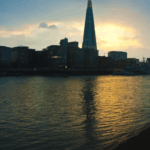A notable shift in alcohol consumption patterns has been observed in the United States, with an increasing number of young adults opting for a healthier lifestyle. This change is largely due to concerns over the impacts of drinking on health. As the perception of alcohol shifts, traditional beverage companies are grappling with challenges to stay relevant in a market that increasingly prioritizes health-conscious choices. Analytics suggest that the U.S. alcohol industry must find innovative ways to respond to these changing consumer attitudes.
The decline in alcohol consumption, now at its lowest since the 1930s, presents a trend that has been gradually taking shape in recent years. Previous surveys highlighted growing awareness regarding the health implications of alcohol among young adults. Efforts by the alcohol industry to adjust to these shifting preferences, such as developing low-calorie or alcohol-free beverages, signify attempts to retain their base. Despite strategic moves from companies, the overall sentiment continues to show a lean towards abstinence, reflecting ingrained health trends.
How Are Alcohol Companies Reacting?
Alcohol companies are facing declining sales, with stocks like Boston Beer, Constellation Brands, and Diageo experiencing substantial downturns, ranging between 10% to 30%. In contrast, Anheuser-Busch InBev has reported a 24% rise this year, a surprising trend against the industry’s backdrop. This disparity evokes questions about the firm’s strategies and market positioning.
What Sets Anheuser-Busch Apart?
Anheuser-Busch’s ability to adjust its portfolio in alignment with changing consumer preferences has been instrumental in its stock surge. By expanding its offerings to include a range of non-alcoholic and low-alcohol products, the company has tapped into the evolving market needs effectively. Furthermore, its strong international footprint has offset domestic shortfalls, ensuring steady revenue streams.
The company reported a setback following its second-quarter earnings report, which could initially alarm investors. Yet, the company remains optimistic, banking on the growth potential of its non-alcoholic beverages and the expanding international market. There remains a strong belief that diversifying their product lineup caters to health-conscious consumers.
“Our strategic pivot towards non-alcoholic offerings is essential to meet market demands,” said a company representative.
The continued decline of the U.S. beer market, along with proposed health warnings on alcohol labels, presents challenges that may hinder sustained growth. With regulation and societal shifts affecting the industry, Anheuser-Busch’s resilience may be tested in the future.
Alcohol companies still heavily reliant on legacy brands face a daunting task as health-focused alternatives become more popular. The next steps involve addressing these perceptions and innovating accordingly. Although Anheuser-Busch’s recent strategies have seen success, the journey ahead requires maintaining momentum while adapting to consumer emphasis on health.
Grasping the necessity to reinvent product offerings in response to consumer health priorities could determine the future sustainability of traditional alcohol companies. Anheuser-Busch’s situation provides an insight into how critical strategic agility can be when confronting market evolutions.
“We are committed to long-term growth by anticipating consumer needs,” added another spokesperson.









